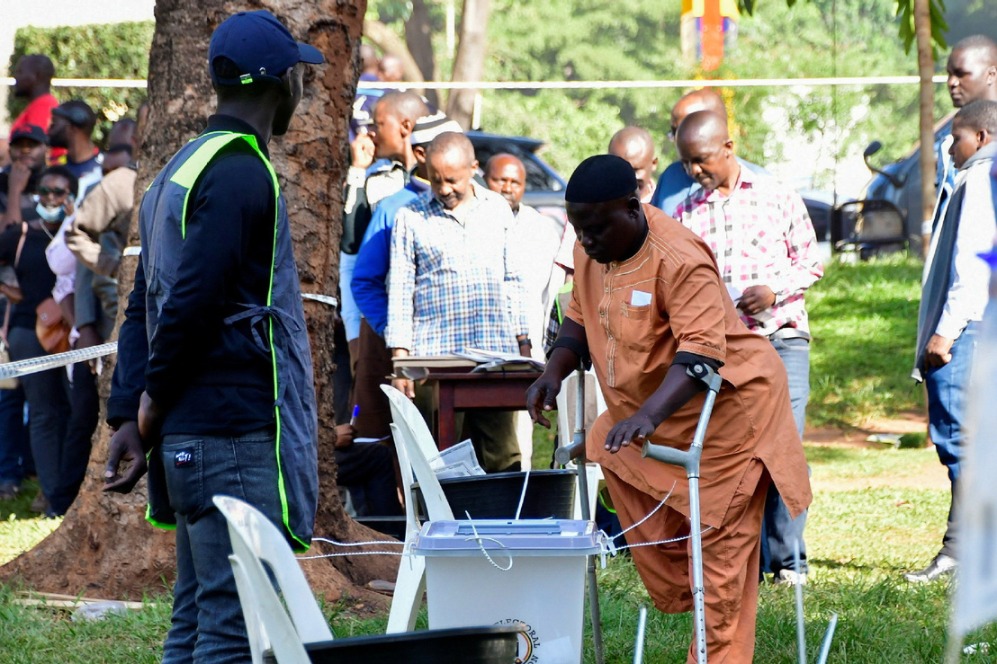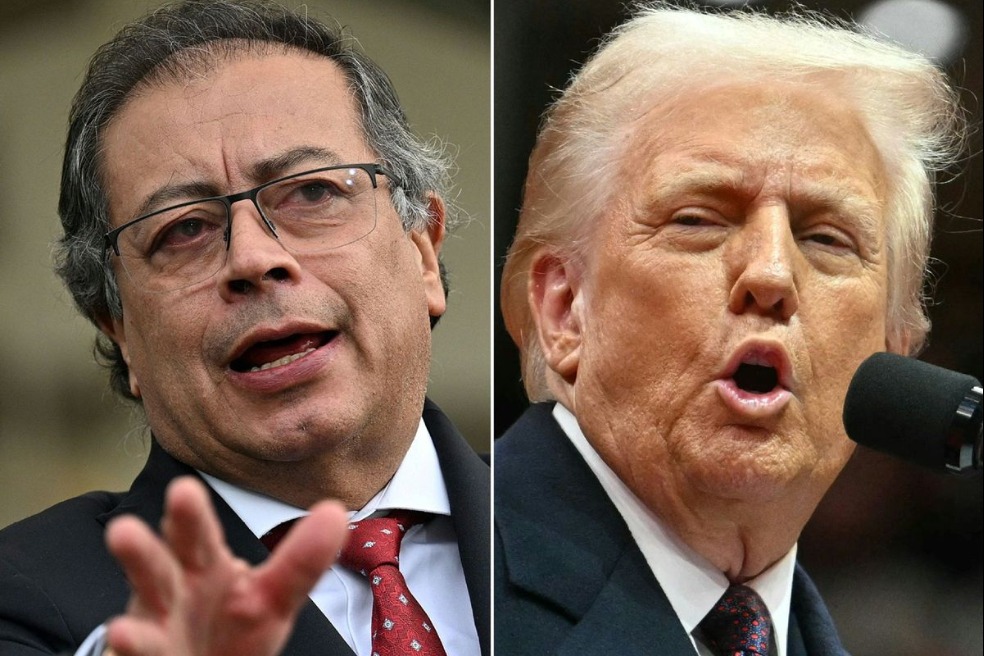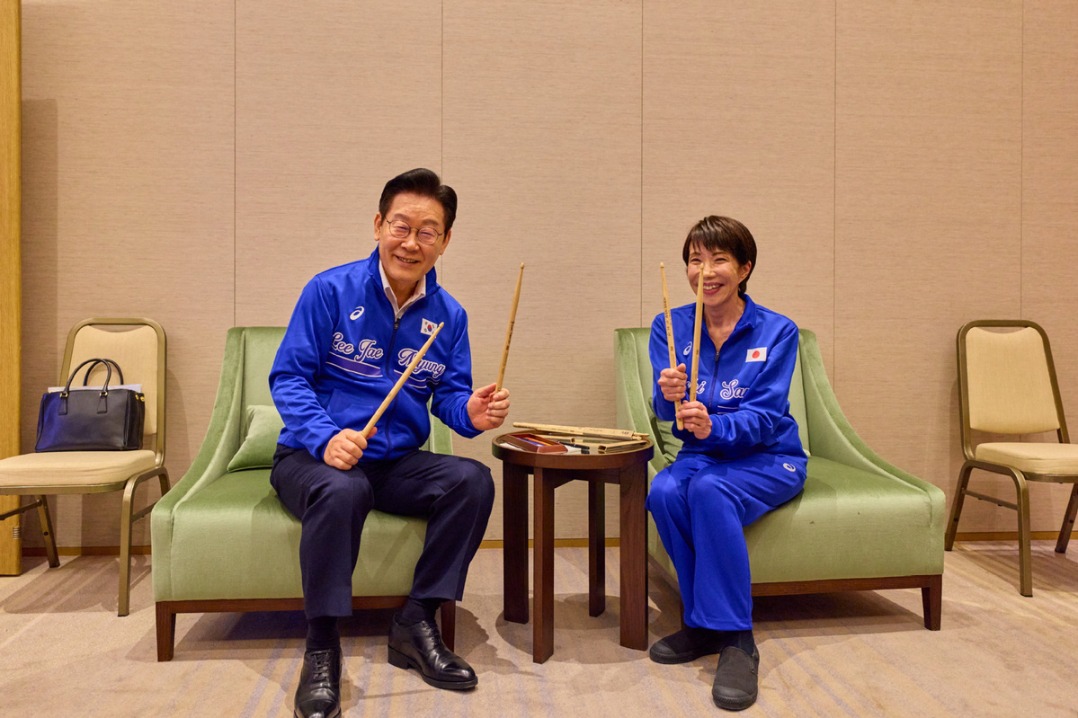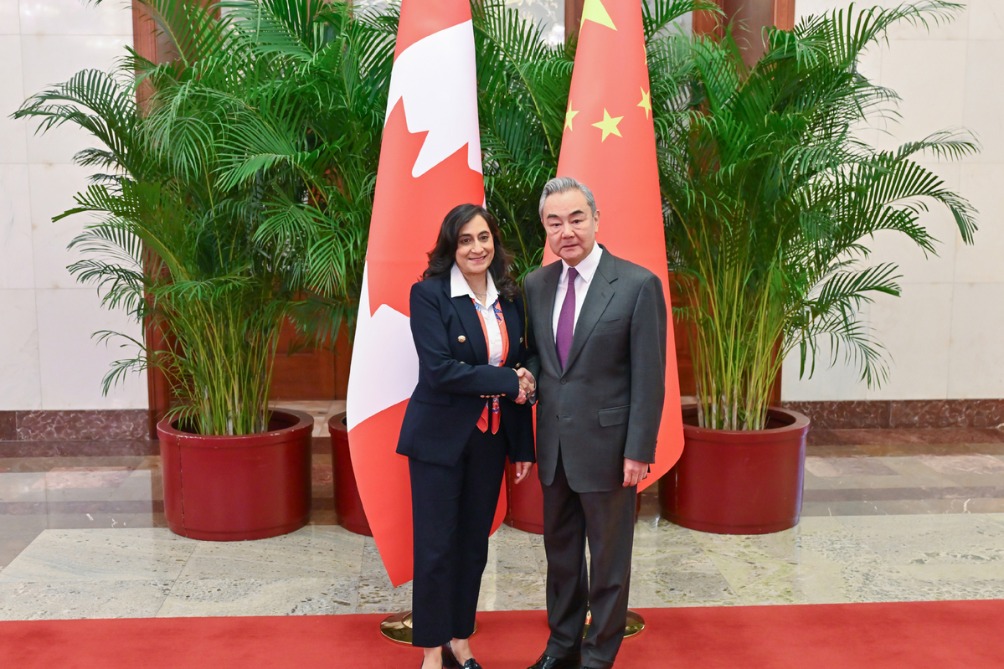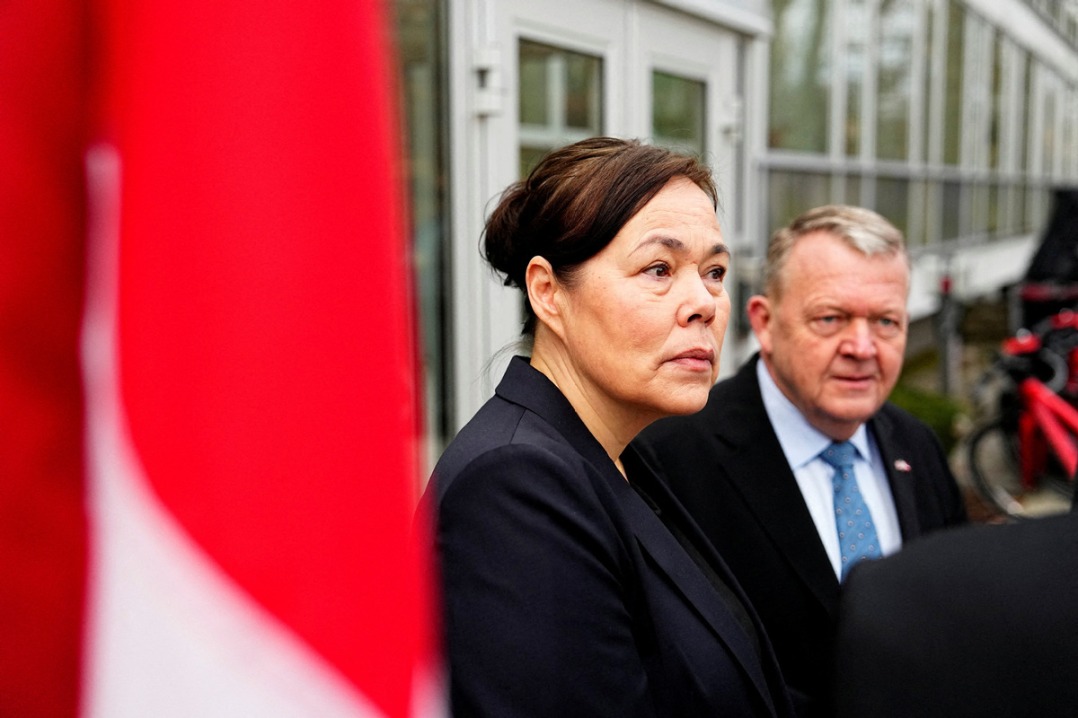Seoul rejects Tokyo's remarks on sanctions

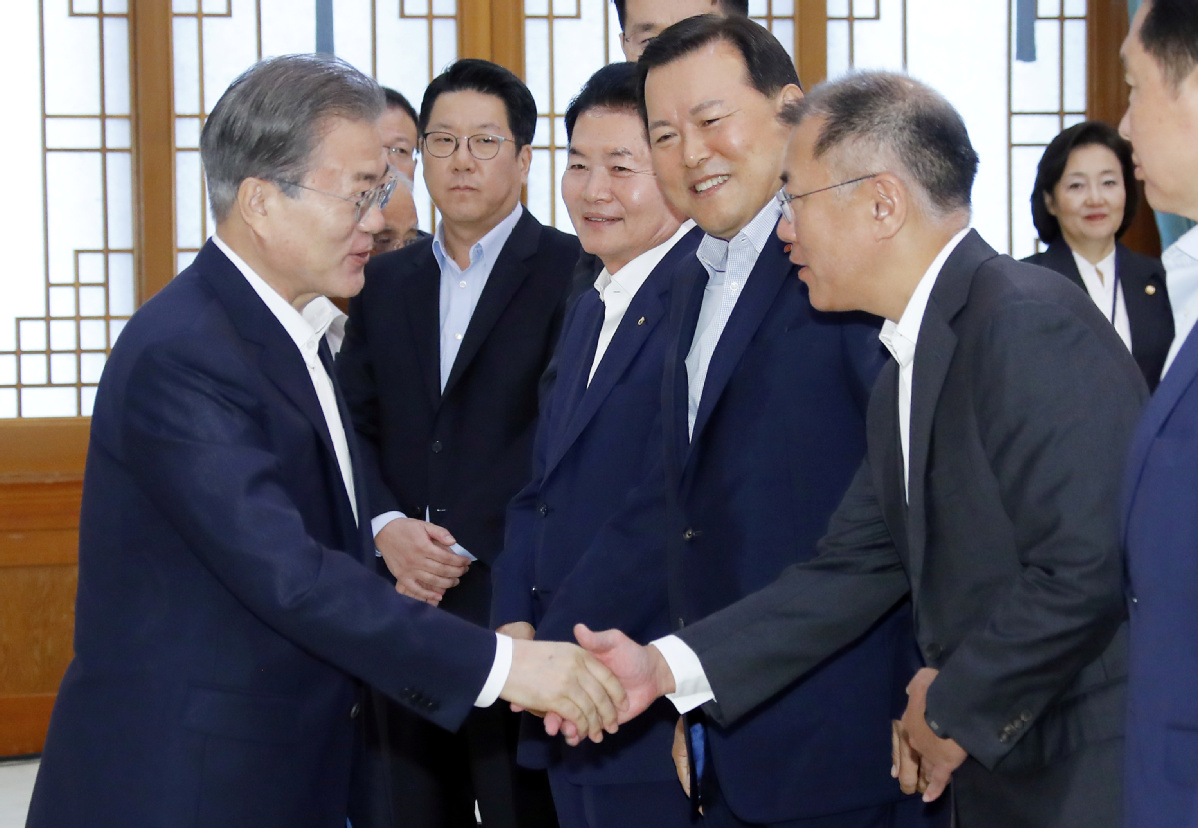
SEOUL - Moon Jae-in, president of the Republic of Korea, on Wednesday criticized comments by Japanese officials who questioned the credibility of Seoul's sanctions against the Democratic People's Republic of Korea when they justified Tokyo's stricter controls on high-tech exports to the ROK.
The issue has become a full-blown diplomatic dispute between the neighboring US allies in Asia.
In a meeting with ROK business leaders at Seoul's presidential palace, Moon said his government was committed to resolving the matter diplomatically and urged Japan to refrain from pushing the situation to a "dead-end street".
Tokyo last week tightened the approval process for Japanese shipments of photoresists and other sensitive materials to ROK companies, which need the chemicals to produce semiconductors and display screens used in TVs and smartphones.
Japanese officials say such materials can be exported only to trustworthy trading partners, hinting at security risks without citing specific cases. Tokyo hasn't elaborated, but Japanese Prime Minister Shinzo Abe and his conservative aides have hinted there may have been illegal transfers of sensitive materials from the ROK to the DPRK.
Moon spoke hours after ROK officials told a WTO meeting in Geneva that the Japanese measures would have repercussions for electronics products worldwide and called for their withdrawal. Japanese officials countered that the measures didn't amount to a trade embargo, but rather a review of export controls based on security concerns.
The ROK, which has an export-reliant economy, sees the Japanese trade curbs as retaliation for ROK court rulings that ordered Japanese firms to compensate aging ROK plaintiffs for forced labor during World War II and plans to file a complaint with the WTO.
Japanese officials have rejected any link to historical disputes.
"(Our) government is doing its best to resolve the issue diplomatically...(I call for) the Japanese government to respond. It should no longer walk straight toward a dead-end street," Moon said in a meeting with senior executives from 30 of the country's biggest companies, including Samsung, Hyundai and SK.
"The Japanese government's move to inflict damage on our economy to serve political purposes and link (the issue) with sanctions against North Korea (DPRK) without any evidence is surely not ideal for the friendship and security cooperation between the two countries," Moon said.
He called for the ROK government and private companies to form an "emergency response system" to deal with the impact of the Japanese trade curbs.
Analysts said the Japanese measure won't have a meaningful impact immediately on ROK chipmakers Samsung Electronics and SK Hynix, which both have sufficient supplies of the materials for now, given the slowdown in demand for semiconductors.
But there's concern that Japan might expand the restrictions to include other sectors. Shin Hakcheol, the CEO of LG Chem, said on Tuesday the company was planning for possible restrictions on battery materials.
Associated Press
















